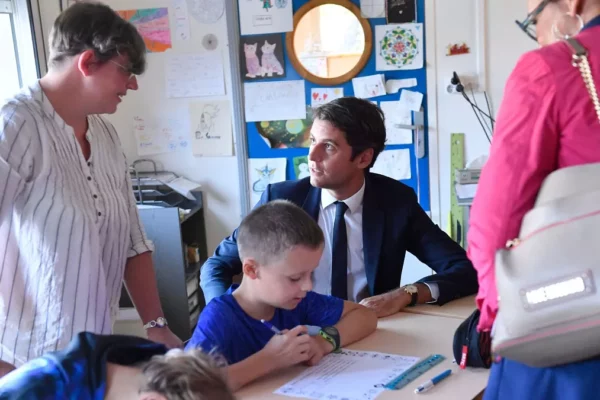Introduction to higher education teaching
As a higher education teacher, my passion lies in sharing knowledge, shaping minds, and helping students reach their full potential. This article aims to provide you with valuable insights, tips, and strategies to thrive in this rewarding profession. Higher education teaching is a dynamic field that requires a unique set of skills and qualities. Understanding the role of a higher education teacher is the first step towards success.
Understanding the role of a higher education teacher
Being a higher education teacher is more than just imparting knowledge. It is about creating an environment that fosters critical thinking, collaboration, and personal growth. As a teacher, I strive to be a facilitator, a guide, and a mentor to my students. I believe in the power of education to transform lives, and I am committed to making a positive impact on my students’ learning journey.
Key skills and qualities of successful higher education teachers
Successful higher education teachers possess a combination of key skills and qualities that enable them to connect with students and create effective learning experiences. Firstly, effective communication skills are essential for conveying complex ideas in a clear and concise manner. Secondly, adaptability and flexibility are crucial in today’s ever-changing educational landscape. Being open to new pedagogical approaches and technologies enhances the learning experience for both students and teachers.
Furthermore, higher education teachers should have a passion for lifelong learning. This enthusiasm for acquiring new knowledge and skills not only benefits the teacher but also inspires students to develop a love for learning. Additionally, empathy and understanding are vital qualities for building positive relationships with students from diverse backgrounds. By creating an inclusive and supportive environment, higher education teachers can empower their students to reach their full potential.
Setting clear learning objectives and goals
Setting clear learning objectives and goals is fundamental to effective teaching. By clearly defining what students should be able to know or do at the end of a course or lesson, teachers provide a roadmap for learning and ensure that their teaching aligns with desired outcomes. Moreover, well-structured learning objectives help students understand what is expected of them and motivate them to actively engage in the learning process.
When setting learning objectives, it is important to consider the specific needs and abilities of your students. Tailoring your objectives to the diverse learning styles and backgrounds of your students enhances their learning experience and promotes inclusivity. Additionally, learning objectives should be measurable and observable, allowing for clear assessment of student progress. By regularly reviewing and refining learning objectives, you can ensure that your teaching remains focused and effective.
Designing effective lesson plans and curriculum
Designing effective lesson plans and curriculum is a crucial aspect of higher education teaching. A well-designed curriculum provides a structured framework for learning and ensures that all necessary content is covered. A key consideration when designing a curriculum is to strike a balance between breadth and depth of content. It is important to cover essential topics while allowing for flexibility and exploration within the curriculum.
When designing lesson plans, it is essential to consider the diverse learning needs of your students. Incorporating a variety of instructional strategies and resources, such as multimedia, group work, and hands-on activities, can enhance student engagement and promote deep learning. Furthermore, aligning your lesson plans with the learning objectives and goals ensures coherence and consistency in your teaching.

Engaging students through interactive teaching methods
Engaging students is crucial for fostering a positive learning environment and promoting meaningful learning experiences. Interactive teaching methods encourage active participation, critical thinking, and collaboration among students. Incorporating discussions, group work, case studies, and problem-solving activities into your teaching can spark student curiosity and promote deeper understanding of the subject matter.
Moreover, technology can be a powerful tool for engaging students in higher education. Utilizing educational apps, online resources, and multimedia materials can enhance the learning experience and cater to different learning styles. However, it is important to strike a balance and ensure that technology is used purposefully and effectively, rather than as a mere substitute for traditional teaching methods.
Assessing student learning and providing timely feedback
Assessing student learning and providing timely feedback are essential components of effective higher education teaching. Regular assessment allows teachers to gauge student progress and understanding, identify areas for improvement, and adjust their teaching accordingly. Additionally, timely feedback provides students with valuable insights into their strengths and areas for growth, empowering them to take ownership of their learning.
There are various assessment methods available, including formative and summative assessments. Formative assessments, such as quizzes, presentations, and group projects, provide ongoing feedback to inform instruction and support student learning. Summative assessments, such as exams and essays, evaluate student achievement at the end of a course or unit. By utilizing a combination of assessment methods, teachers can gain a comprehensive understanding of student learning.
Building positive relationships with students and colleagues
Building positive relationships with students and colleagues is essential for creating a supportive and inclusive learning environment. By establishing rapport and trust with students, teachers can foster a sense of belonging and motivation to succeed. This can be achieved through active listening, showing empathy, and demonstrating genuine care for students’ well-being.
Collaboration with colleagues is also vital for professional growth and development. By sharing ideas, resources, and best practices, teachers can learn from one another and enhance their teaching effectiveness. Participating in professional development opportunities, such as workshops, conferences, and online courses, can further enrich teaching practices and keep educators up to date with the latest trends in higher education.
Continuing professional development for higher education teachers
Continuing professional development (CPD) is crucial for higher education teachers to stay current in their field and enhance their teaching skills. Engaging in CPD activities allows teachers to explore new pedagogical approaches, learn about emerging technologies, and connect with other professionals in the field. By investing in their own professional growth, teachers can provide a higher quality education to their students.
There are numerous CPD opportunities available, ranging from attending conferences and workshops to pursuing advanced degrees or certifications. Online platforms and communities also offer a wealth of resources and networking opportunities for higher education teachers. It is important for teachers to develop a personalized CPD plan that aligns with their professional goals and interests.
Dealing with challenges and overcoming obstacles in higher education teaching
Higher education teaching is not without its challenges. From diverse student backgrounds and learning styles to limited resources and time constraints, teachers often face obstacles that can impact their teaching effectiveness. However, with the right mindset and strategies, these challenges can be overcome.
Firstly, maintaining a positive attitude and resilience is crucial when facing challenges. Recognizing that setbacks are part of the learning process allows teachers to embrace them as opportunities for growth. Seeking support from colleagues, mentors, and professional networks can also provide valuable insights and guidance in navigating challenges.
Additionally, effective time management and prioritization skills are essential for balancing teaching responsibilities, research, and other professional commitments. By setting realistic goals, delegating tasks when possible, and utilizing efficient organizational strategies, teachers can optimize their productivity and reduce stress.
Resources and tools for higher education teachers
There is a wealth of resources and tools available to support higher education teachers in their teaching endeavors. Online platforms, such as learning management systems and educational websites, offer a variety of resources, including lesson plans, multimedia materials, and assessment tools. These resources can save teachers time and provide inspiration for engaging teaching practices.
Furthermore, professional organizations and associations often provide access to research journals, publications, and conferences that foster professional growth and networking opportunities. Collaborating with colleagues and participating in learning communities can also provide a source of support, inspiration, and innovative ideas.










Comments on " How to Thrive as a Higher Education Teacher: Tips and Strategies for Success" :